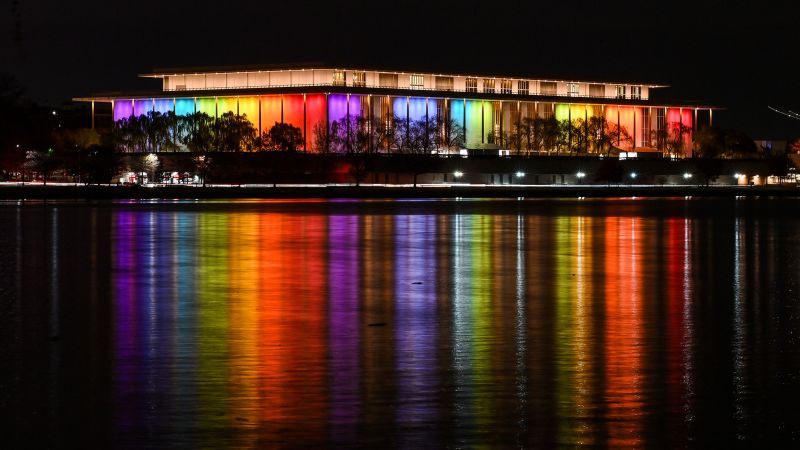In a recent turn of events, the Kennedy Center has decided to cancel a series of events scheduled for June 5 to June 8, 2024, which were part of the Tapestry of Pride celebrating LGBTQ+ rights coinciding with the World Pride festival in Washington, D.C. The cancellations were prompted by a significant shift in leadership and priorities at the Kennedy Center, a culturally prominent institution known for its artistic contributions. This decision was met with disappointment by various artists and producers who were involved in organizing these events, prompting the Washington Capital Pride Alliance to sever its ties with the Kennedy Center altogether.
June Crenshaw, the deputy director of the Capital Pride Alliance, expressed the resilience of the LGBTQ+ community, stating, “We are a resilient community, and we have found other avenues to celebrate.” Nonetheless, she expressed discontent with having to navigate this situation, indicating that it was disheartening. Despite the cancellations, the Kennedy Center’s website still advertises the Tapestry of Pride, albeit lacking any specific information or updates, which raises further questions about the center’s commitment to supporting LGBTQ+ initiatives.
The backdrop for this cancellation is notable, as it follows dramatic organizational changes at the Kennedy Center, including the dismissal of its president and chairman by former President Donald Trump. His administration replaced much of the board with individuals loyal to him, subsequently electing him as the new chairman of the Kennedy Center. This new leadership has altered the atmosphere surrounding the institution, coinciding with apprehensions regarding policies related to transgender rights and the administration’s past critiques of drag performances at the Kennedy Center.
World Pride, a historical event that occurs every two years, is set to take place from May 17 to June 8, 2024. Various performances and celebrations are planned across Washington, D.C. Despite the community’s eagerness to host this momentous occasion, concerns linger about potential hostility that attendees might encounter, influenced by the new governmental leadership. Michael Roest, the founder and director of the International Pride Orchestra, witnessed his planned performance at the Kennedy Center abruptly canceled shortly after the changes in leadership, reflecting the tumultuous environment for LGBTQ+ artists.
Roest detailed how, following months of preparation and communication, he received a terse email terminating the performance just days after Trump announced the changes. “They went from very eager to host to nothing,” he lamented, and emphasized that this sudden halt would not deter their efforts to continue celebrating pride, as they successfully relocated the performance to the Strathmore theater in nearby Bethesda, Maryland.
In addition to Roest, other artists also faced abrupt cancellations. Notably, Monica Alford, a veteran arts and culture journalist, experienced silenced communication after years of working with the Kennedy Center. She had previously organized various events designed to uplift the queer community, branding the Kennedy Center as a “safe space” for such expressions.
Alford’s planned event for June 8, meant to be family-friendly and featuring elements similar to previous successful endeavors, now lacks a home. She mourned the lost partnership, stating, “We’re doing our community a disservice — not just the queer community but the entire community.” This sentiment illustrates both the personal and communal loss felt, emphasizing how deeply intertwined the Kennedy Center has been with the LGBTQ+ culture.
Roest expressed his disillusionment with the Kennedy Center, asserting that without a clear and public commitment to inclusivity from the new administration, he and many queer artists would shy away from future collaborations. “There would need to be a very, very public statement of inclusivity… for us to consider that,” he said, highlighting the importance of proactive, positive affirmation in reclaiming safe spaces for expression and celebration within the arts.
As events unfold leading to the World Pride festival, it remains to be seen how the LGBTQ+ community will navigate these changes and establish resilient pathways to celebrate their identities and rights amid shifting sociopolitical landscapes.



